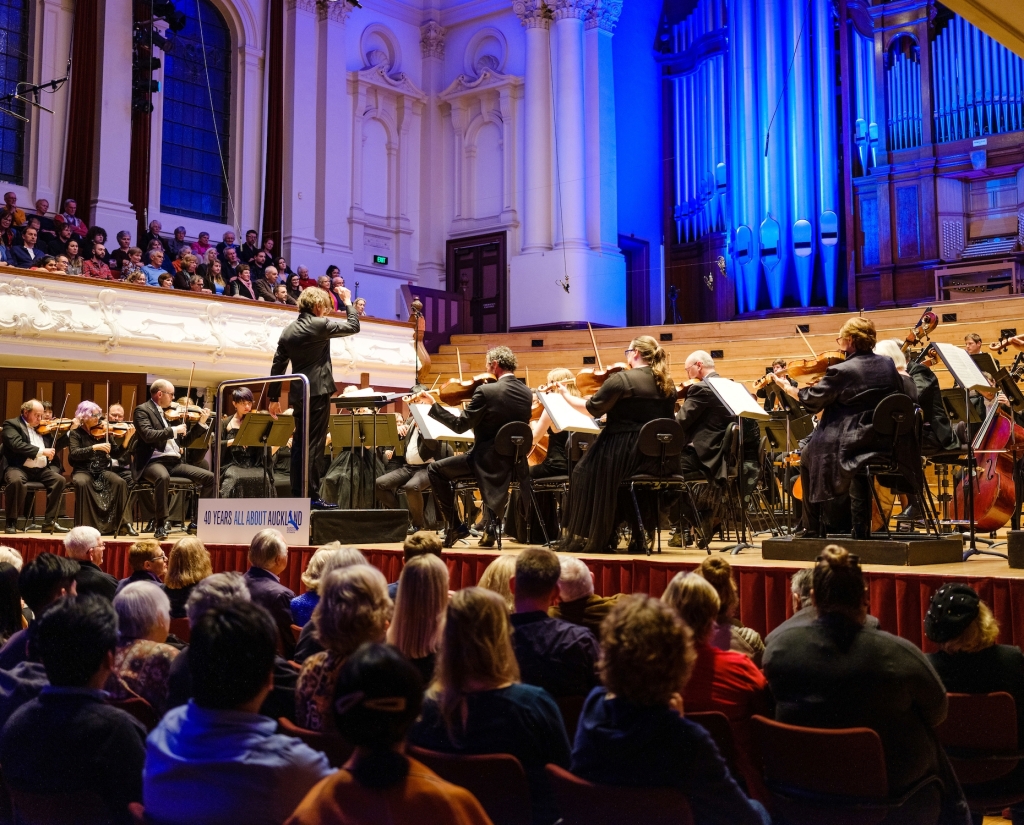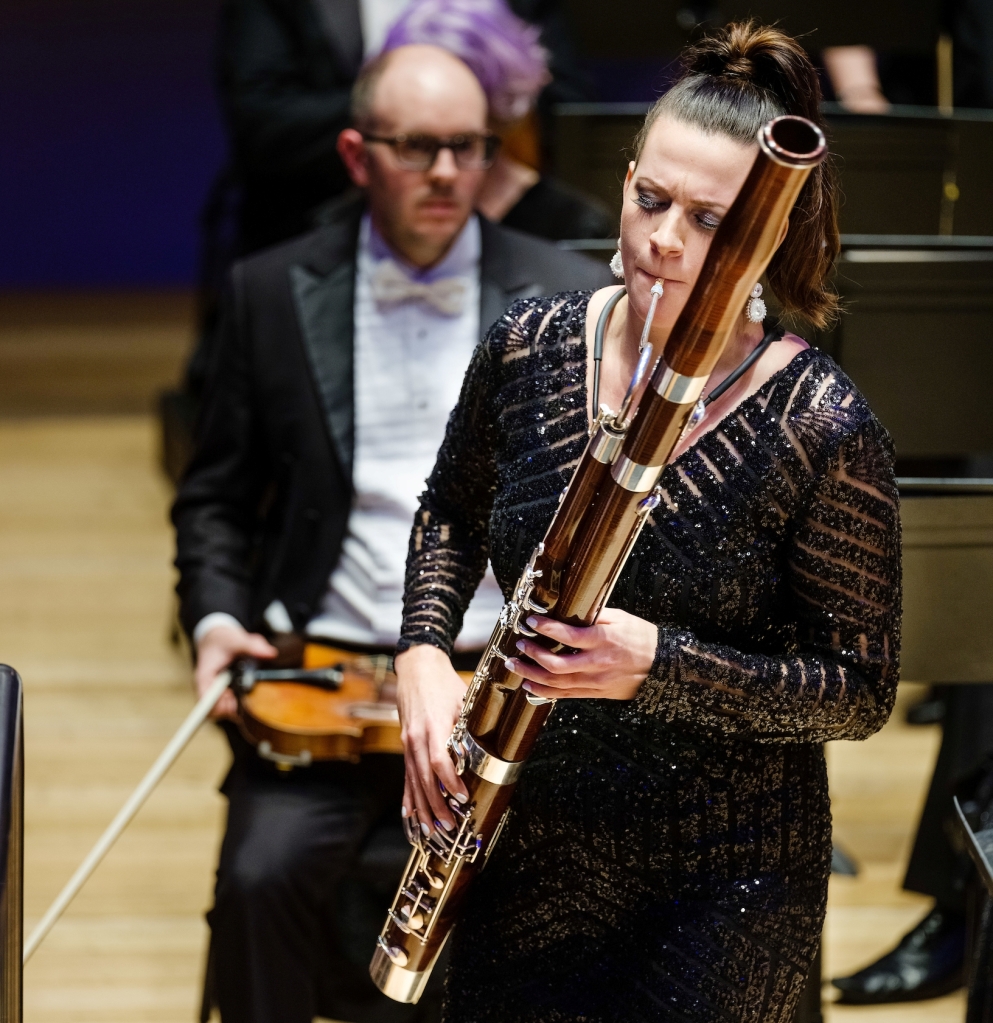
Auckland Philharmonia Orchestra
Mozart & Dvorak.
Auckland Town Hall
July 16
Reviewed by John Daly-Peoples
The highlight of the APO’s recent Mozart & Dvorak concert was neither of the two big works on the programme, concert, Mozart’s bassoon Concerto and Dvorak’s Sixth Symphony.
It was the short encore by bassoonist Ingrid Hagan, the APO’s Principal Bassoonist playing a moving version of Leonard Cohen’s Hallelujah.
Replicating the gravelly tones of Cohen, Hagan’s instrument, sounding at times like a saxophone and at other times like a low voice, was a work worthy of being a eulogy to the victims of Covid 19.
Before the encore Hagan had performed Mozart’s Bassoon Concerto, a work which was composed when the composer was eighteen as he was embarking on his adult career. It was designed to show off his talents and is full of youthful exuberance and technical intricacies, requiring the soloists to race between the high notes and the guttural tones at the lower end of the instruments range.
Hagan’s stylish performance showed that she had complete mastery of the technical demands as well as understanding the nuances of the work.
The bassoon is an ungainly instrument but with Hagan it seemed like an extension of her limbs, embracing it and at times seeming to dance with it.
She had a bravura approach to playing which matched the composer’s showmanship especially in the solo sections where she displayed remarkable flair and skill.
The main work on the programme was Dvorak’s Sixth Symphony, in which he evokes four landscapes owing much to Beethoven and Brahms. Each of the movements was a musical description of a landscape threaded through with folk tunes; the idyll forest scene with hunting calls, cascading rivers and passing storm, the pastoral second movement and the heady drama of the third movement with its urgent dance melodies borrowed from his own Slavonic Dances.
The concert was originally going to feature Handel’s oratorio “The Creation” with a huge choir, but this was abandoned because of the Covid Crisis. The audience did however get to hear the opening orchestral section of the work, ”Th e Representation of Chaos” in which the composer imagined the creation of the world according to Genesis.
One of the impressive things about the piece is that it captures the essence not so much of Creation but Evolution. One can detect the beginnings of life from nothingness, the emergence from the primeval swamp and the ascent of man, all conveyed by a series of radical musical sequences and “big bangs”
This contemplation of the world was followed by an equally thought-provoking work with Charles Ives’ “The Unanswered Question” in which the composer addresses the question of existence. An offstage trumpet seems to pose the question while the flutes attempt to answer initially with slow tentative refrains and an increasingly frenetic collage of discordant notes as well as eloquent silences. Throughout this conversation the strings were superbly conducted by Hamish McKeich providing a sense of timelessness with their serene infinite sounds.
Next APO concert
New Horizons
Auckland Town Hall
July 30
Lilburn, A Song of Islands
Szymanowski, Violin Concerto No.2
Sibelius Symphony, No.2
The concert opens with Lilburn’s A Song of Islands, being performed by the APO for the first time. Written by the New Zealand Douglas Lilburn in 1946, it is said to portray the spirit of our country, the remoteness of our islands and the otherworldly ambience of our landscapes.
APO concertmaster Andrew Beer plays the early twentieth century Polish composer Karol Szymanowski’s Second Violin Concerto.
The main work on the programme is Sibelius’s beautiful and life affirming Second Symphony.
